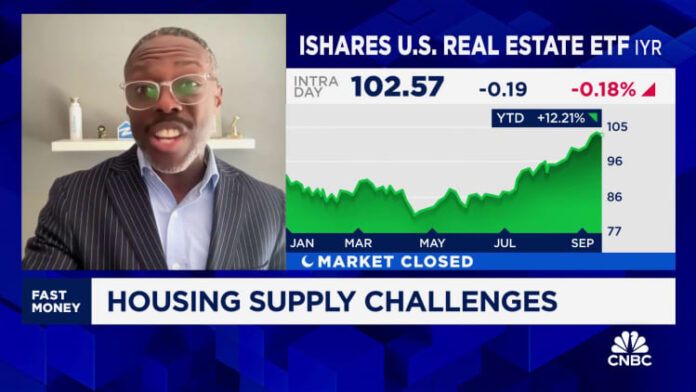The Federal Reserve cut its benchmark interest rate by half a percentage point, or 50 basis points, on Wednesday. This was its first rate cut since March 2020.
Even before the Fed's rate cut, some homeowners had taken advantage of recent declines in mortgage rates. According to the Mortgage Bankers Association, refinancing activity rose to 46.7 percent of all applications in the week ending Sept. 6, up from 46.4 percent the week before.
Others are waiting for the Fed to take action. So far, 18 percent of consumers said they plan to refinance a loan once interest rates drop, according to a report from NerdWallet, which surveyed more than 2,000 American adults in July.
It may be too early to see the benefits of mortgage refinancing.
“You want to wait until interest rates are at a level where you are comfortable maintaining them for a period of time,” says Melissa Cohn, regional vice president of William Raveis Mortgage in New York.
Plus, experts say that applying for refinancing doesn't necessarily mean your loan will be approved. Your lender could say “no.”
“No matter what the Fed does, no matter what is happening in the overall economy, remember that you have a part to play in all of this,” said Jacob Channel, senior economist at LendingTree.
More from Personal Finance:
Annoying medical bill? Take this important step
The repair costs for household appliances are no joke
How to avoid a “tax bomb” from your inherited IRA
Factors that could limit your ability to refinance
1. Your financial situation has changed
Make sure your finances are in order. Otherwise, your lender may not approve your mortgage refinance, experts say.
Applying for refinancing is similar to applying for a mortgage. A change in your financial situation, such as a layoff, lower income or increased debt, could mean you are ineligible.
“Your mortgage rate and whether you get approved for a loan or refinance depends on you,” Channel said.
Think about all the “variables that got you approved in the first place,” Cohn said, such as your credit score, income and how much debt you've had recently. Changing these variables could affect your ability to get approved.
2. You have not had your loan long enough
How quickly you can refinance your mortgage depends on your loan term and the lender's requirements.
According to LendingTree, some loan types allow you to refinance within days of closing, while others may require a year's worth of payments.
3. You have recently refinanced your debt
Technically, there are no hard limits on how many times you can refinance your mortgage, Channel said.
However, some lenders are imposing waiting periods, he said, and in those cases, a refinancing done today may not be possible in December if interest rates fall after the last Fed meeting of the year.
“While there may not be a hard limit on how many times you can refinance, you probably don't really want to do it that often,” he said.
You pay closing costs every time you refinance, “so you don't want to spend the money foolishly,” Cohn said.
It may be in your best interest to consider refinancing your mortgage only every few years if your financial situation has changed or interest rates drop “really dramatically,” Channel explained.
“Otherwise, you end up in a situation where you've spent so much money on refinancing that your monthly savings are barely enough,” he said.
“It might be worth talking about a mortgage change”
In some cases, modifying your mortgage or amending your original home loan may be an option to make your payments more manageable.
“If you're really, really in trouble and let's say something catastrophic has happened in your life … it might be worth talking to your lender about a mortgage modification rather than a refinance,” Channel said.
Although there is no danger of collapse for the real estate market as a whole, and most homeowners are “not on the verge of foreclosure,” he said.
However, if you're experiencing financial difficulties, your lender may be willing to change the terms of your mortgage, Channel said. Contact your lender and see if you qualify.
Keep in mind that whether a mortgage refinance makes sense depends on factors such as your income, how long you expect to stay in your home and your closing costs, Cohn says.
“There is no rule of thumb that applies to everyone in the country,” she said.
Talk to your lender or broker or consult a financial advisor to find out what might work best for you, Channel said.
“They can explain the details of your situation,” he said.

















